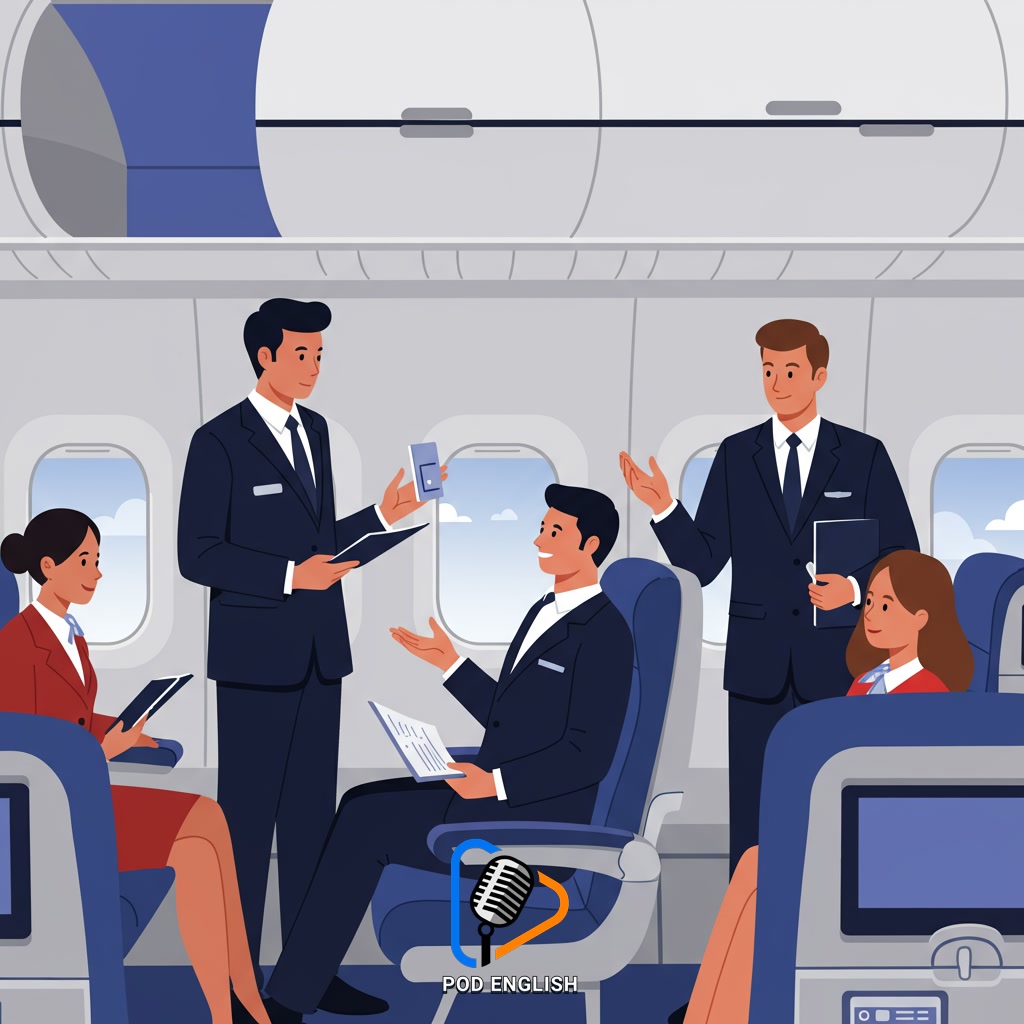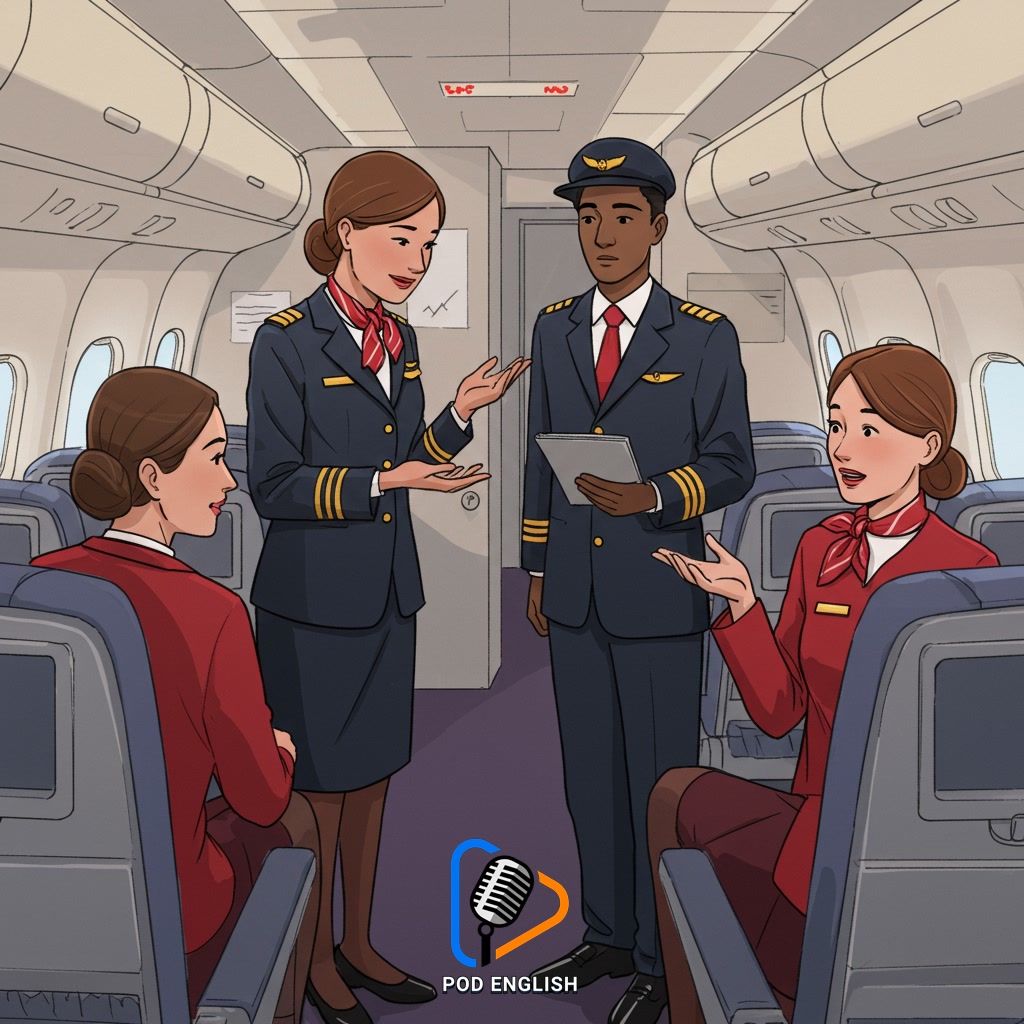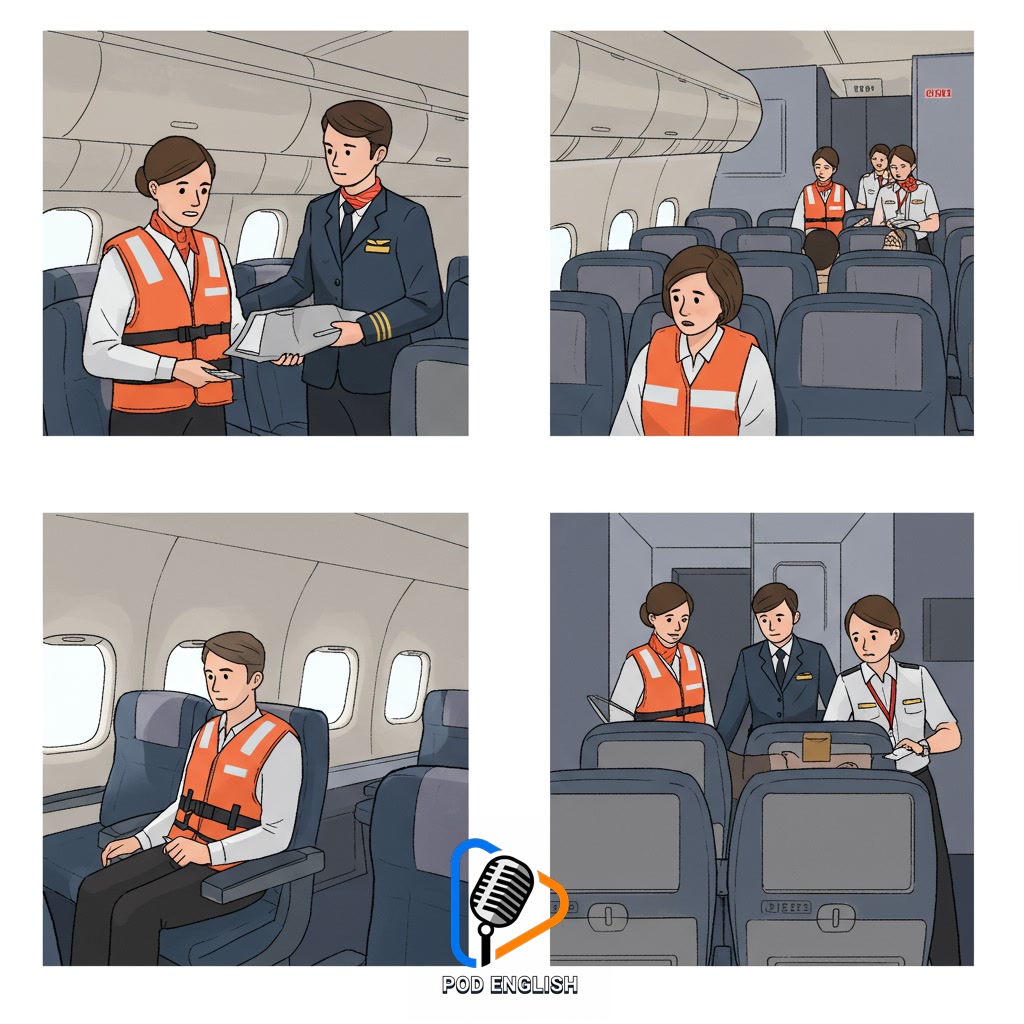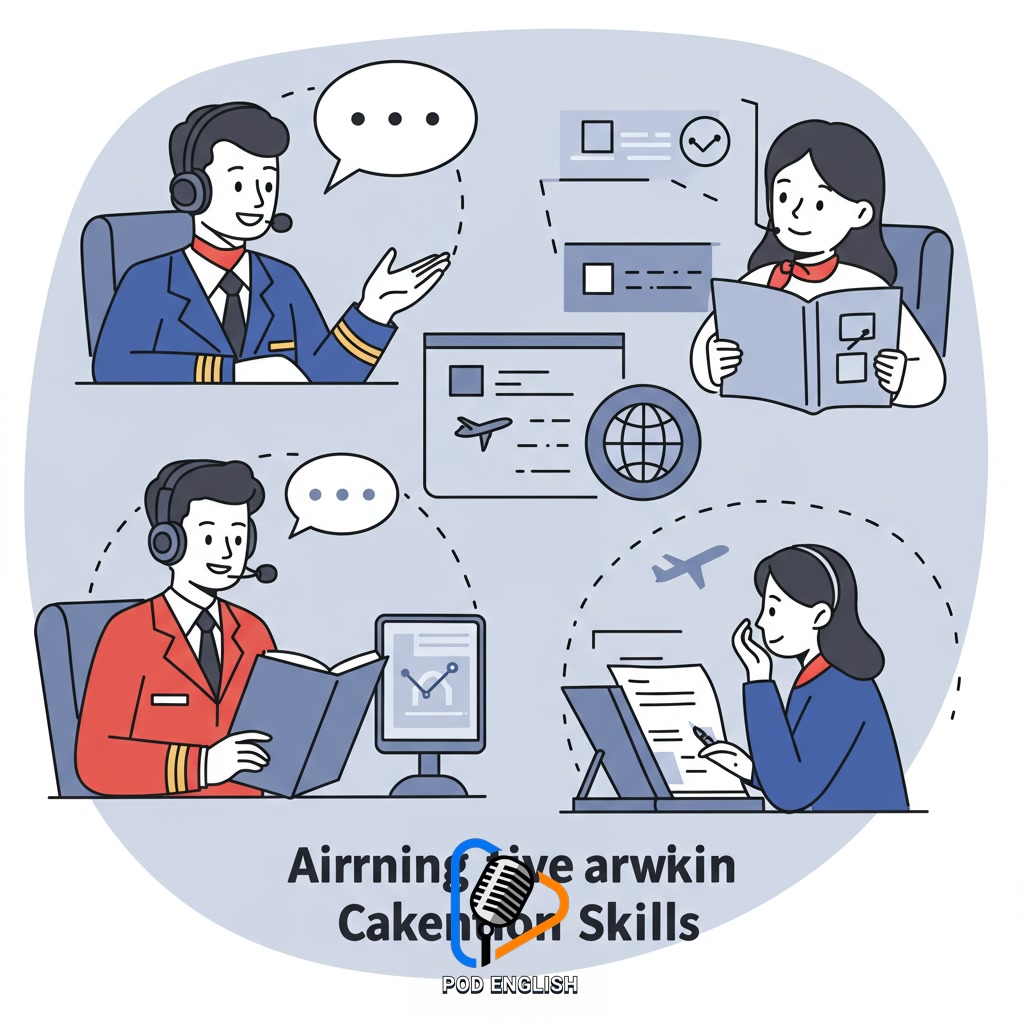Learn English
Master Essential English for Airline and Cabin Crew

This content focuses on essential English communication skills for individuals working as airline or cabin crew. It aims to help professionals achieve proficiency in the specific language required for their duties. The material covers vital vocabulary, phrases, and situational conversations encountered in the aviation environment, providing practical guidance for learning English relevant to passenger interaction and operational needs.
Table of Contents
- Section 1: Why English is Essential for Airline and Cabin Crew
- Section 2: Building Your Foundational English Skills for Aviation
- Section 3: Mastering Core Vocabulary and Phrases for Onboard Communication
- Section 4: Effective Communication and Passenger Interaction Techniques
- Section 5: Handling Specific Situations: Safety, Emergencies, and Customer Service
- Section 6: Continuous Learning and Practice for Fluency
Section 1: Why English is Essential for Airline and Cabin Crew
English is absolutely vital for anyone working as airline or cabin crew. The aviation industry is inherently global, connecting people from all over the world. As a crew member, you will interact daily with passengers and colleagues who speak many different languages. English serves as the universal language of aviation, essential for clear and effective communication. This is crucial for ensuring passenger safety, providing excellent customer service, coordinating with pilots, air traffic control, and ground staff, and handling unexpected situations or emergencies calmly and efficiently. Mastering English not only helps you perform your duties safely and professionally but also opens doors for career advancement in this international field.

Why English is Essential for Airline and Cabin Crew
Section 2: Building Your Foundational English Skills for Aviation
Building a strong foundation in English is the essential first step for aspiring and current airline and cabin crew members. While the previous section highlighted the global necessity of English in aviation, this section focuses on *how* to acquire the core skills. This involves mastering fundamental grammar rules, expanding basic vocabulary related to everyday situations and simple aviation concepts, and practicing clear pronunciation. Developing these foundational skills allows you to understand simple announcements, respond appropriately to basic passenger requests, and comprehend initial safety briefings. It provides the necessary building blocks before you delve into more specialized aviation terminology and complex communication scenarios. Consistent practice with these basics will significantly boost your confidence and prepare you for more advanced language challenges in your aviation career.

Building Your Foundational English Skills for Aviation
Section 3: Mastering Core Vocabulary and Phrases for Onboard Communication
Building upon the foundational English skills discussed previously, this section delves into the specific vocabulary and phrases crucial for effective communication within the dynamic environment of an aircraft cabin. Mastering these core terms is paramount for cabin crew and airline staff as it directly impacts passenger safety, comfort, and operational efficiency. We will explore essential language related to passenger greetings and assistance, safety briefings, service procedures, handling emergencies, and coordinating with fellow crew members and ground staff. Developing a strong command of this specialized lexicon allows crew to respond confidently and accurately in various onboard situations, ensuring clear, professional interactions and a smooth flight experience for everyone. Focusing on these practical phrases will significantly enhance your ability to perform duties effectively and provide excellent service.

Mastering Core Vocabulary and Phrases for Onboard Communication
Section 4: Effective Communication and Passenger Interaction Techniques
Building upon the foundational English skills discussed previously, this section delves into the specific vocabulary and phrases crucial for effective communication within the dynamic environment of an aircraft cabin. Mastering passenger interaction techniques is vital for cabin crew. This involves not only speaking clearly and politely in English but also active listening to understand passenger needs and concerns. We will explore how to greet passengers warmly, provide clear instructions, handle inquiries efficiently, and address challenging situations with empathy and professionalism, all while using the appropriate English expressions. Practicing these skills ensures a positive passenger experience and contributes to flight safety and comfort.

Effective Communication and Passenger Interaction Techniques
Section 5: Handling Specific Situations: Safety, Emergencies, and Customer Service
Building upon the foundational English skills discussed previously, this section delves into the specific vocabulary and phrases crucial for effective communication within the dynamic environment of the aircraft cabin. You will learn essential language needed to handle critical scenarios, including delivering clear and calm safety briefings, responding appropriately during unexpected emergencies, and managing various passenger requests and concerns with professionalism and empathy. This involves mastering specific terminology for safety equipment, emergency procedures, and common customer service interactions, ensuring you can communicate confidently and accurately under pressure to maintain passenger safety and satisfaction. The goal is to equip you with the precise English skills required to navigate challenging situations effectively, ensuring smooth operations and a positive passenger experience.

Handling Specific Situations: Safety, Emergencies, and Customer Service
Section 6: Continuous Learning and Practice for Fluency
Achieving fluency in essential English for airline and cabin crew is not a one-time task but an ongoing journey. Continuous learning and regular practice are vital to solidify your skills and adapt to new situations. This involves actively seeking opportunities to use the language, whether through dedicated study sessions, practicing conversations with colleagues, listening to aviation-related audio, or reading industry materials. Consistent practice helps reinforce vocabulary and phrases, improves pronunciation and listening comprehension, and builds confidence in speaking. Embracing a mindset of continuous improvement ensures you remain proficient and comfortable communicating effectively in the dynamic airline environment.

Continuous Learning and Practice for Fluency













